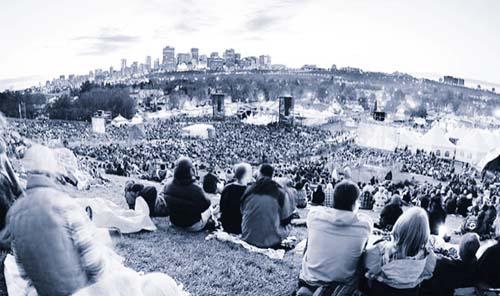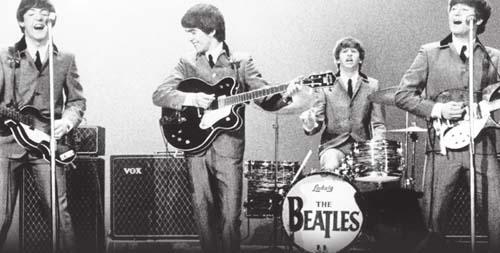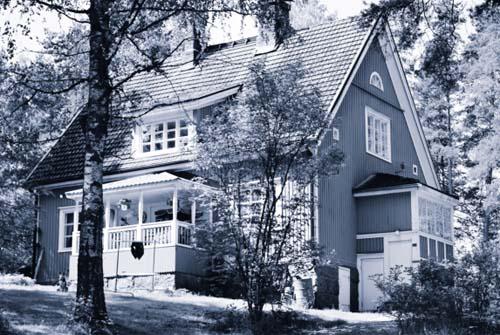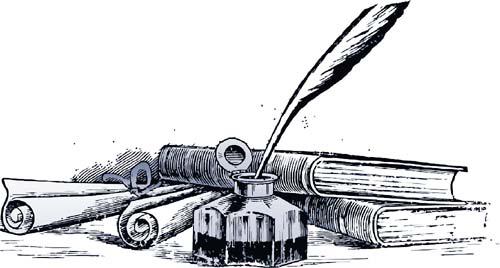文化或成为英国新的伟大产业
2018-08-14ByMelvynBragg
By Melvyn Bragg

Class has not slunk1 away from these islands. It never will. Too many people have an investment in it. But most would now describe themselves more happily by their taste, their private passions, what they like to do, rather than what an ancient three-part hierarchical system decrees that they were meant to be.2 Class is being bypassed3.
We have become keener on being individuals, or at most small tribes in our communities. When we are asked directly about which class we belong to, we reply politely, but wearily,and play the game for old times sake.4 The whole thing is now a bit of a charade5. Snobbery still exists, but it is comical or pathetic and no longer has a cutting edge.6
I would argue that we are now a nation of cultures rather than a nation of classes. If we look at the passion with which people describe what they do in their leisure time, you have a truer picture of our society today. Thats where the energy is; thats who we are now.
How would you really describe yourself? I suggest it might be through the type of music you like, the sport you follow, the radio station you listen to, the authors you read, the ballet or the opera or theatre you go to, the soaps7 or the galleries—or a mix of all. The old snakeskin of class falls away when we look at what we really do, or are given half the chance to be as we really want to be.8
Who would have thought that opera and ballet, until recently for the very few, would now be broadcast on television? We have operas live from New York on the radio. The theatre, not long ago a rather expensive luxury for a minority, is now integral9 to our new city centres and is in the ambitions of a wide range of schools.
Drama is becoming a classless national obsession, and the underpinning10 of radio and television has helped make London the greatest city of theatre in the world. The pattern is not so different with school orchestras, while the growth of visitor numbers to our gloriously free museums and galleries has been phenomenal.11 The butterfly is finally out of the chrysalis12.

Divisions of wealth remain of course, and the rich get richer while the poor, relatively, get poorer. Wealth still means greater access and greater choice. Poverty can mean social and cultural imprisonment13. But this is nothing like the scale of difference we saw a hundred years ago, or even 60 years ago. There have been absolute changes for the better, physically, materially and socially, and it is a slur on those who worked for those changes over a hundred years to insist that we are still stuck in the slum/toff land of Edwardian England.14
The power of culture in this country—we have the biggest creative industry per capita in the world—has replaced or reconfigured the class system.15 Having said that, the old class act is still around. Sixty per cent of the present Cabinet went to paying schools, as did about the same percentage of judges, and more than half of the land is still in the hands of the ancient looters from the time of the Conquest to the Dissolution of the Monasteries and the occupation of the common land.16 And the new super-rich, as ever, ape the old, doing up the statelies and padding after the past like the little page following Good King Wenceslas.17
This is all the focus of the new BBC television series, Class and Culture, which starts recently. In the programmes we take 1911 as the starting point. In 1911, men could be ranked in descending order by top hats,bowler hats, trilbies or cloth caps.18 Now we have the equality of the naked head.19 In 1911, the upper classes owned what was called culture—great houses, paintings and gardens. Now much of this is owned by the people.
All of this might have changed much more. Lord Hutchinson, now in his feisty nineties, a public school and Oxford man, a grandee, a friend of No?l Coward and who served with Mountbatten in the Navy during the war, told me that in 1944 he had fully expected, and wanted, public schools to be abolished, so that the whole country could start out afresh on an equal footing.20 He said that this view was widespread among his friends.
It was a Labour Prime Minister, Clement Attlee, a man devoted to his own public school, who decided against it. This tremendous non-act, many think, has been responsible for much of the countrys decline, following its neglect of manufacturing and the cultures of engineering and skills.21
But enough! We have reinvented ourselves dramatically since the middle of the last century. We have found a way to emerge from the loss of a territorial and an industrial empire, and one of the chief ways we have done that is to swing22 towards the arts and culture.

In the process, we have set up an alternative Britain. It is more democratic, better off for more people, freer, more tolerant, less snobbish. But above all it is more stimulating: it has stimulated an economy of the mind, a stock market of the arts, a trade in cultures, and it is this that is slowly, with setbacks of course,23 bringing a new and richer identity to the place we live in.
One indisputable marker can be seen in the pop music of the 1960s: the intellectual foray of the Who, the promises of general promiscuity of the Stones, but above all the undeniable quality of the Beatles.24 They brought a popular culture, which had been stranded25 outside the class system and outside technology for so long, to the attention of a wider public. Now it was seen that popular music could be considered as an art form alongside classical music; that television dramas could match anything in the West End26; that radio and television comedy from the old working-class music hall could provide the platform for new artists.
Towns and cities were aswarm with young men and women who saw that what they liked could be the watermark of their time.27 People from other countries who came here at first played the class game, but their children saw that society was changing. They saw a bazaar, a souk a new market of cultures28—that was where the action was, and is, and they dived in.
Imitation of the old has been replaced for the intelligent by their delight in the new. Culture has come out of its class cage. There has been a stupendous29 increase in the celebration of the arts in festivals, in villages and cities all over the country. This may be our new great industry.
Yes, yes. This is a partial and optimistic view. And there is much that is unreconstructed in our society, and much that needs to be done to make it better.
But lets not block out one of the great seachanges of our age.30 From being branded as a unit in a class army—at whatever level—more and more people are getting on with what they individually want to do and are defining themselves through their own taste in the widening range of our ever-expanding culture.31 Its a quiet revolution.

1. slink: 溜走。
2. hierarchical: // 等級的;decree: 法令,政令。
3. bypass: 绕过,忽视。
4. 如果有人直接问我们属于哪个阶层,我们会礼貌地回答,但是内心会很抵触,不过是照老规矩这么做罢了。play the game: 办事公道,做事讲道德;for old times sake: 看在过去的情分上。
5. charade: 显而易见的作假,明显的伪装。
6. snobbery: 势利,虚荣;cutting edge:发展前沿,领先位置。
7. soap: 肥皂剧(以一种以家庭问题为题材的广播或电视连续剧)。
8. 当我们看到自己真正在做的事情,或是我们有一半的机会去成为我们真正想成为的人时,会发现阶级的区分已经逐渐消失。snakeskin: 蛇皮,此处比喻“外壳,外形”;fall away: 消失,改变。
9. integral: 构成整体所必需的。
10. underpin: 支撑,加强。
11. orchestra: 管弦乐队;phenomenal: 非凡的,显著的。
12. chrysalis: // 蛹,茧。
13. imprisonment: 禁锢,限制。
14. 不管在体能上、物质上、还是社会上,都发生了翻天覆地的变化。如果还说我们处于上世纪初爱德华七世统治下的那种贫富分化中,那就是对一百年来为此付出努力的许许多多人的诽谤了。slur: 诽谤;slum: 贫民窟;toff: 富豪;Edwardian England: 英国的爱德华时期,即20世纪初的10年。当时,英国由爱德华七世统治,他对艺术和时尚十分关心,倡导了贵族阶级的奢靡之风。
15. per capita: 人均(地);reconfigure: 重新装配,改装。
16. 现在的内阁成员中,60%都来自私立学校,法官中私立学校毕业的,也是这个比例。超过一半的土地依然在过去的剥削者手中,从第一批盎格鲁-撒克逊人来到英国,到16世纪修道院的解散,再到17、18世纪的圈地运动,一直都是如此。looter: 掠夺者;dissolution: 解散;monastery: 修道院,寺院;common land:公地,公共用地。
17. 而如今崛起的新贵,也学着过去的贵族,开始修缮古宅,就像跟在仁君温瑟拉后面学步的准骑士。ape: 此处为动词,模仿;do up: 整修,装潢;stately (home): 豪华古宅;page: 旧时骑士身边的男孩,一边服侍骑士,一边学习如何成为骑士;Good King Wenceslas: 仁君温瑟拉(c.907—935),以殉道者的形象成为捷克的圣徒,在一首传唱他的圣歌当中,他后面总跟着一个小跟班,就是前文说的page。
18. top hat: 高顶礼帽;bowler hat: 圆顶礼帽;trilby: 软毡帽;cloth cap: 布帽。
19. 现在我们平等了,谁都不戴帽子了。
20. feisty: 精力充沛的,神采奕奕的;grandee: 大人物,重要人物;public shcool: 译作“公学”,在英国是一种昂贵的私立学校;No?l Coward: 诺埃尔·考沃德(1899—1973),英国著名的导演、剧作家;Mountbatten: 路易斯·蒙巴顿(1900—1979),曾任英国海军元帅、东南亚盟军总司令;afresh on an equal footing: 在平等的基础上重新开始。
21. 很多人认为,正是这种强有力的“无为”观念,以及对大批量生产、工业文化和机械技术的不屑,使英国逐渐走上了下坡路。
22. swing: 摇摆,改变。
23. stimulating: 有启发性的,增强活力的;setback: 失败,退步。
24. indisputable: 不容置疑的,无可争辩的;foray: 初次尝试;promiscuity: 滥交。句中提到的是三个著名的流行音乐乐队:“谁人”、“滚石”和“甲壳虫”。
25. strand: 使滞留,使被困住。
26. West End: 伦敦西区,被认为是贵族和高雅文化聚集的地方,所以文中说,现在电视剧也可以匹敌西区的高雅艺术了。
27. be aswarm with: 充满;watermark: 水印,水位标志。
28. bazaar: 集市;souk: 露天市场。
29. stupendous: 令人惊叹的,了不起的。
30. block: 阻挡;sea-change: 彻底变化。
31. 过去,人们像被编入军队一样,被划分为严格的等级。如今,人们开始逐渐认识自己的初心,并用日益丰富的文化中自己独特的品位来定义自己。
閱读感评
在笔者看来,说目前英国社会已无传统意义上的阶级区分,只有闲暇时间的趣味、品位不同,恐怕是有点儿幼稚的想法。同样地,过于强调社会上因收入、财富及地位的不同而产生对立的阶级与等级,以致引发人为的社会矛盾与分裂而非我们更愿意看到的社会合作与融合,更会招致普遍的反感与反对。何谓Class?在《牛津词典》中与本文相关的释义为“division or order of society”“a caste system, a system of social classes”,译为中文即“社会等级,阶级,阶层;等级制度”。那么,在历史上这个“阶级或阶层”是如何划分并以什么标准来划分的呢?
说到社会等级与阶级,我们可能首先要想到法国大革命(1789)与《共产党宣言》(1848)。法国大革命时期,法国社会被分为三个等级:第一等级为天主教僧侣,第二等级为贵族,这两个等级属于当时的封建统治阶级,或称特权阶级;第三等级为资产阶级、小资产阶级、无产阶级前身与农民阶级,他们属于被统治阶级,处于无权地位。法国大革命正是处于底层的第三等级起来革了第一、第二等级的命——推翻君主,建立共和!《共产党宣言》的第一章标题即为“资产者与无产者”,第一句话即开宗明义地宣称“迄今为止,一切社会的历史都是阶级斗争的历史”(The history of all hitherto existing society is the history of class struggles),接着解释说,“我们的时代,……整个社会日益分裂为两大敌对的阵营,分裂为两大相互直接对立的阶级:资产阶级和无产阶级。”那么,马克思与恩格斯是如何划分这两个阶级的呢?他们在这章的题注里已予以明确说明:“资产阶级即为现代资本家阶级,社会生产资料的所有者,工资劳动的雇佣者;无产阶级即为现代以赚取工资为生的劳动者,不占有生产资料,只能靠出卖劳动力为生。”显然,法国大革命时期的阶级划分更强调社会地位,而当资本主义发展到19世纪中叶,就更强调经济因素,而且将阶级一分为二,更加简单化。我们国家在1949年后实施社会主义制度,采取的是列宁主义的苏联模式,将社会阶级划分为比较复杂的城乡两大系统:城市有民族资产阶级(资本家)、小资产阶级、半无产阶级、无产阶级;农村有地主、富农、中农、下中农、贫农、雇农。从这些名称也可以看出,这些阶级基本是按照其当时拥有财富的多寡(所办企业的规模或占有土地的数量)来划分的。

以社会地位与财富多寡为标准来划分阶级,是长期以来的普遍做法,但在20世纪西方社会开始淡化这种划分意识,阶级的划分出现了更为中性的说法,比较普遍的是三类划分法:上流社会(Upper Class)、中产阶级(Middle Class)与社会底层(Lower Class)。西方世界自“二战”后的普遍趋势是中产阶级越来越壮大,而两头的数量在缩小,因此被形象地称作“枣核形社会”。
在“二战”以后的西方社会,由于激进革命已难有土壤,同时中产阶级的规模日益壮大,他们对于传统意义上的阶级划分越来越缺乏兴趣,于是以社会学方法为基础,纷纷提出新的更为温和的标准。其中一个典型的范例是美国学者保罗·弗塞尔的《阶层:美国社会地位系统指南》(Class: A Guide through the American Status System, 1983)。该书作者对于美国社会阶层的分析,强调金钱已不再是社会等级分类的主要依据,更非唯一标准,代之而起的是人的精神生活的品位与追求,成为了阶级划分的重要试金石。可能是由于这个主题,中译本的译者将该书名改译为《格调:社会等级与生活品位》(2011)。而今,这本书上的主要观点被原文的作者继承,并予以了一定程度的延伸,或者说更为激进。例如,作者说“今日的英国是一个多样文化而非多种阶级的国度。只要瞧一瞧人们是如何充满热情地在闲暇时间从事各种活动,你对今日社会就会有更真实的认识。那是我们的精力所在,也是目前定义自我的标准。”“这个国家的文化力量已取代或重置了阶级体系。”“过去的人们像军人被编入部队番号一样,有严格的阶级标签。而今,越来越多的人根据各自的个性需求,在日益丰富的文化生活中,以自己独特的品位来定位自我。”用个人的文化品位或者说生活格调,而不再用财富与地位来定义自我在社会中的位置,这当然主要是中产阶级的美好愿望,因为中产阶级被夹在社会等级的中间,对自我的处境比较敏感,不太愿意用一些客观的标准来定义自我,以免难堪。然而,上面的判断虽有一定的道理,但毕竟不是整个事实所在。首先,这些文化艺术品位、格调的养成是需要社会环境与家庭条件的,有时往往还要在中上层的“原生家庭”里从小受到熏陶,也就是说高雅、大众与低俗的品位,并非与经济与社会地位无关,常常有千丝万缕的联系。其次,个人在社会上还是被赋予了一定的标签的,而这些标签是一个综合产物,并非仅由文化品位定义。以大学为例,大学就像社会,有从校长、教授到打字员、清洁工等各类工种人等,其中最受人尊重的阶层,中外无疑都是资深教授,尤其在中国最好还是兼任行政职务的教授。一般地说,他们在大学中的文化品位确实是最高的,但他们的地位与收入在其中更是起着举足轻重的作用。最后,我们来举个英国的例子。我们都知道英国有所谓的绅士,那是英国上流社会的标签。但英国的绅士仅仅有穿衣戴帽手持司的克(手杖)、崇尚女士优先、为女性开门等骑士风度和歌剧马术马球等高雅品位的软指标恐怕还是不行的,还必須要有英国伊顿公学与牛津、剑桥的学历,非同一般的殷实家庭物质条件,最好还要有贵族血统这些硬指标!
